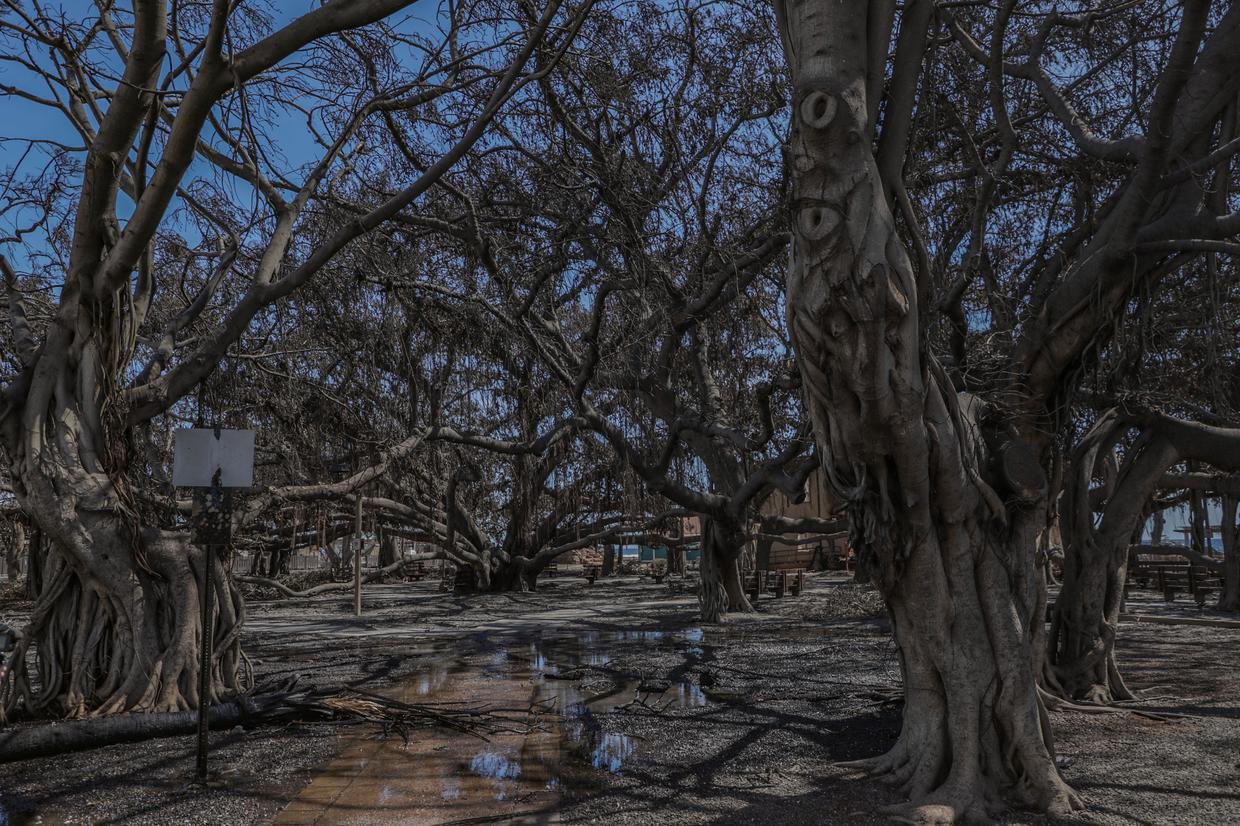Green Policies and Government Incompetence Led to the Tragedy of the Maui Fire
As many as 1000 persons, many of them children, may have died as a result of the fire in Maui. The exact toll -- above the hundreds documented -- is difficult to assess right now as the bodies are charred beyond recognition and scientific equipment to test the remains are not readily available, but the tragedy -- naturally and without basis -- is being blamed on "climate change” in many of the media accounts. In fact, these people died as human sacrifices to green policies, legislative and corporate missteps, and administrative incompetence. The citizens of Hawaii, a solidly Democratic one-party state, are learning what those of similarly governed urban centers are learning: elect incompetents who forget their first duty is to protect their constituents and you will suffer. Will they respond as they ought to and vote out of office the governor and legislature responsible?
The fire began at 12:22 a.m. when most residents were home. Sirens could have alerted them to get out of danger, but none were utilized. Maui’s emergency operations chief, Herman Andaya, who lacked any background in disaster response, said they were used to alert residents that a tsunami was coming and to go to higher ground and he feared if he sounded the alarm people would move to higher ground where the fire was. Governor Josh Green defended Andaya’s decision. Andaya, citing “health concerns” has resigned.
Firefighters on the scene were denied water to fight the fires. M. Kaleo Manuel, who previously said, “My motto has always been: let water connect us, not divide us,” is an Obama Foundation leader and it was he who refused to release the water so firefighters could fight the conflagration and save lives and property. Water is a precious commodity on the island and Manuel’s focus was on assuring plantations did not take so much of it that native downstream farms lacked enough water. West Maui Land Co. sought water to fight the fire, but Manuel balked, saying the company should first seek permission from a native Hawaiian traditional farm downstream. Other companies also sought water to fight the fires and he refused all of them, even though unlike West Maui Land Co., they had no water disputes with that native farm. When Manuel finally released the water, it was too late. He has been reassigned.
The fire itself was occasioned by hurricane force winds passing over drought-stricken land. Toppled electric wires ignited flammable grasses around those wires. Electricity was not shut down during the storm and much is made of the company’s failure to remove the grasses, but the story is a bit more complicated.
During the 2019 wildfire season, one of the worst Maui had ever seen, Hawaiian Electric concluded that it needed to do far more to prevent its power lines from emitting sparks...
Now, the company is facing scrutiny, litigation and a financial crisis over indications that its power lines might have played a role in igniting the deadliest U.S. wildfire in more than a century...
Hawaiian Electric has made reference in regulatory filings to the risks of power-line fires, but it waited years to take significant action, documents and interviews show. During that period, the company was undertaking a state-mandated shift to renewable energy...
Hawaii has been on a push to convert to renewables since 2008, when a run-up in oil prices sent electrical rates at Hawaiian Electric -- which relied on petroleum imports for 80% of its energy supply -- through the roof. In 2015, lawmakers passed legislation mandating that the state derive 100% of its electricity from renewable sources by 2045, the first such requirement in the U.S...
“You have to look at the scope and scale of the transformation within [Hawaiian Electric] that was occurring throughout the system,” said Mina Morita, who chaired the state utilities commission from 2011 to 2015. “While there was concern for wildfire risk, politically the focus was on electricity generation.”
Gov. Green’s biography reports that from 2008 to 2018, he served in the Hawaii state Senate, “including as Majority Floor Leader, Chair of the Health and Human Services committees, and Vice Chair of the Energy and Environment, and Human Services and Housing committees.”
Last year in the Honolulu Star-Advertiser, Mr. Green wrote:
As a state senator, I sponsored Hawaii’s first renewable portfolio standards that mandated a substantial portion of Hawaii’s future energy production come from renewable energy sources.
Read More Here: American Thinker





